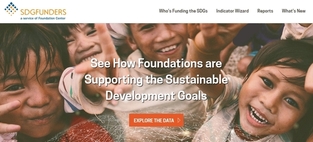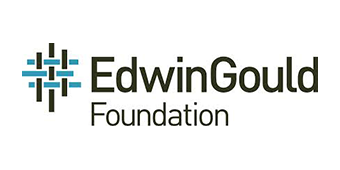Funder’s Forum: The Pinkerton Foundation
The Pinkerton Foundation was established in 1966 to support community-based programs for children, youth, and families in economically disadvantaged areas in New York City. Pinkerton favors direct-service programs that have one overriding goal: to help young people reach their full potential. Foundation Center asked its president, Richard M. Smith:
Q: How is the Pinkerton Foundation able to increase its impact working with community-based programs for children and youth in under-resourced areas?
“One of our recent initiatives, the Science Research Mentoring Program, grew out of a program at the American Museum of Natural History. It's an intensive program for disadvantaged young people that includes 70 hours of classroom work on scientific methodology and content knowledge, 100 hours of direct mentoring with scientists doing authentic scientific research, and a culminating project that requires the students to do a presentation based on their work. When the museum was unable to expand the program because their scientists were fully booked, we funded a consultant to develop a template based on the program and to convene other science-based institutions in the city. We committed to fully fund for two years other institutions that established programs with the same core values, and assuming they were successful, to then fund them at 50 percent for the following two years.
The program has gone from placing 60 young people in research positions to close to 400 today, at 15 different institutions around the city. It is exposing young people to real science and encouraging them to major in STEM areas. Because of their exposure to high level academics and their experience in working with adults, we also see the program providing assistance for college success. An unintended consequence has been that a number of program graduates have been snapped up as laboratory assistants in their freshman year. One of the other surprises has been how genuinely excited the scientist mentors are about these programs. They find that they are learning about themselves, learning about young people, and learning how to convey their scientific work to a younger audience. A number of the mentors have said that this has been the best teaching education that they have ever had. In addition to the impact the program has on the students, it would be interesting to capture the learning that has gone on among the mentors.
We're near the end of the third year now and are hoping that by fully funding two years followed by two years at half funding, we can enlist the support of other funders to keep the program going. It's easy to imagine that the 400 young people who have been touched by the program today might be 800 or 1,000 in a few years. We would be happy to discuss ways to engage anyone in the funding community who is interested in STEM projects; we want to get them excited about a program that we are obviously very excited about ourselves.
How much can the program grow? When we were first talking about it, I had a quiet thought that every city of any significant size has a number of institutions that could adapt the core elements of this program. It would be wonderful if a host of other science-based institutions around the country decided to deliver this kind of experience to disadvantaged young people in their geographic areas. We'd be eager to share our thoughts.
Another major Pinkerton initiative is a neighborhood literacy project. Two years ago our senior program officer, Laurie Dien, organized a meeting of a number of literacy programs we had supported, along with representatives of the city's three library systems. We were surprised by how few of the people around the table knew each other. We talked about the creation of a learning community and potential projects that would increase the level of coordination among these groups. Our goal was not to change the way these organizations work, but to make sure that they were working together in a collaborative way.
The first program out of the blocks is South Jamaica Reads. Coordinated by Literacy Inc., the process begins with two programs that work with low income parents of infants and toddlers to stress the importance of reading and school readiness. These efforts in turn feed into other literacy and tutoring programs in the schools and the surrounding community. Ten organizations in all are at work on the project. If successful, the entire campaign will develop a culture of reading in South Jamaica, Queens and create much needed consistency in the help that is offered to struggling readers.
We're concentrating a lot of existing resources on one community to see if we can move the needle. To me, one of the most exciting aspects of this initiative is the community engagement. More than 30 businesses have already signed on to give discounts to parents and program participants who show their South Jamaica Reads "passport." Parents have been trained as volunteers to tutor in the schools. Traffic at the neighborhood's branch libraries is up in a dramatic way, and we have made it possible for one of the branches to open on Saturdays and hire a full-time children's specialist.
If we see the kind of student progress and continuing community engagement that we hope for, then we would like to extend this model to other communities. Each of the programs involved has its own funding base, and as we consider opportunities in Brooklyn and the Bronx, we will be encouraging other funders to think about ways that they can help to enhance collaboration in the early literacy space."




